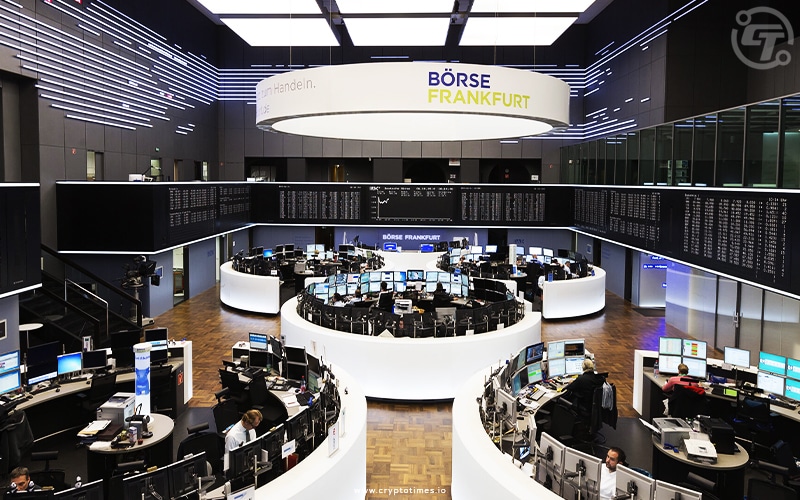Frankfurt Stock Exchange, steered by Deutsche Börse, charts a transformative course in its ‘Horizon 2026’ vision. This strategic leap spotlights crypto and digital assets, set to redefine the investment landscape.
Deutsche Börse, the Frankfurt Stock Exchange’s parent company, has boldly earmarked crypto as a key player in its forward-looking ‘Horizon 2026’ strategy. Consequently, a groundbreaking expansion looms on the horizon.
This expansion focuses on digital platforms, where existing and novel asset classes will burgeon through innovative technologies. Moreover, this plan will expedite the D7 digital securities registry powered by blockchain. Additionally, it promises to craft a sophisticated trading hub for digital assets.
This move pinpoints institutional investors as its primary clientele. The platform will encompass comprehensive services: tokenization, trading, settlement, and the custody of securities. This suite extends to alternative assets and a spectrum of cryptocurrencies.
Notably, the report casts light on stablecoins and central bank digital currencies. However, it leaves their exact roles on this new stage tantalizingly unclear.
Boerse Stuttgart, has been navigating cryptocurrency trading since April 2022 while the Frankfurt Stock Exchange itself is no stranger to the crypto sphere. In 2021, it heralded the integration of a Litecoin exchange-traded product, a venture led by Deutsche Börse Xetra and the ETC Group from London.
This strategic roadmap promises a dynamic fusion of the financial world’s strength with the agility of the burgeoning digital asset realm. Hence, it marks a decisive step toward a future where traditional finance and digital innovation converge, offering investors a broadened horizon of possibilities.
As such, Frankfurt’s financial landscape is poised not just for change but for revolution as ‘Horizon 2026’ steers it toward uncharted yet exceedingly promising digital domains.
Also Read: Fineqia to Set Up Fineqia Glass Slipper Ventures to Invest in Digital Asset-Focused Companies






